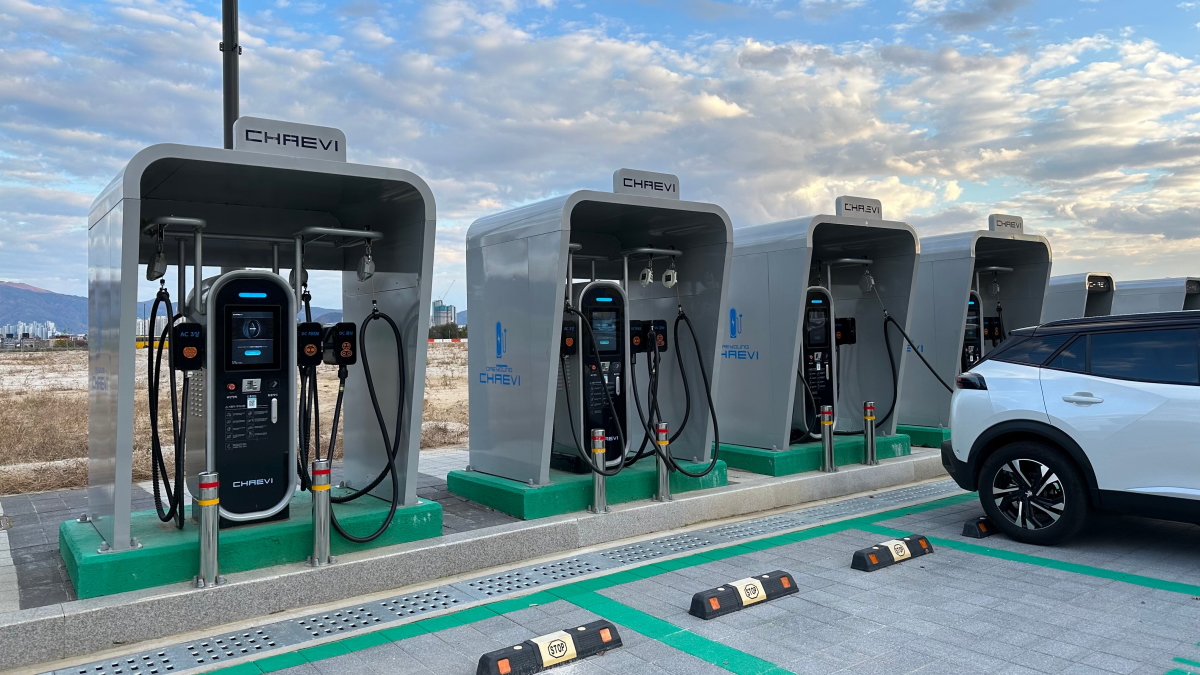Posco the South Korean steel-making giant, is expanding its footprint in Australia to source raw materials required for the South Korea EV (electric vehicle) battery market segment. Posco has already invested A$5 bn ($3.4 bn) in Australia, which includes traditional raw materials such as iron ore and coal, as well as lithium, nickel, graphite, and other minerals essential in the manufacturing of electric vehicle batteries, Ben Bosung Kim, the managing director for steel giant, informed the media.
Speaking at the Australia-Korea Business Council (AKBC) conference in Sydney, Kim told Reuters, “Australia and Korea are always complementary and interdependent in terms of Australia’s mining and Korea’s manufacturing.”
Posco’s role in South Korea EV
South Korea aims to become a battery manufacturing powerhouse by 2030 to achieve its target of being carbon-neutral by 2050. Vying for the top spot are Asian countries such as China, Japan, South Korea, India and Indonesia which have seen increased activity in EV production and battery supply chain sectors.
Posco has intensified the domestic manufacturing of materials used in EVs to support South Korea’s ambitions in the sector. Several projects have sprung up in Gwangyang, a city in South Jeolla province on the Southern coast of Korea that includes Battery Cathode, Lithium plants and environment-friendly steel production for EVs.
Posco might become the key catalyst for South Korea’s EV ambitions, owing to its deals in the EV battery component and battery recycling segments.
With a goal to bolster South Korea’s EV battery manufacturing capacity, Posco recently bought a 30% stake in First Quantum Minerals’ Ravensthorpe nickel mine in Western Australia. Last year, the steel-making giant entered into a joint venture with Pilbara Minerals to build a 43,000-tonne lithium hydroxide chemical facility back home in Korea.
The Gwangyang unit with Pilbara will comprise two production trains with an output of 21,500 tonnes of lithium hydroxide monohydrate (LHM) per year. Pilbara Minerals managing director and CEO Ken Brinsden said, “This joint venture will give Pilbara Minerals significant exposure to one of the world’s most dynamic and fastest-growing markets for lithium chemicals.” The opening of this facility is slated for the second half of 2023.
South Korea is likely to become one of the key players in the global EV industry in the years to come, with Elon Musk too citing the Asian country’s importance in the sector, while considering setting up a Tesla gigafactory in Korea.
South Korea holds one-third of the $46 bn market for EV batteries but relies heavily on neighbour China for critical minerals. With elevated concerns over Beijing’s control of the sector, Australia is emerging as a hotspot for South Korea’s EV ambitions. This will significantly reduce the dependence on China, which remains a key supplier to South Korea for EVs manufacturing.
Other interests of Posco
Posco considers Australia a key target for the company’s investment in hydrogen projects. According to Juik Choo, Posco Executive Vice President and Head of Hydrogen Business, the company wishes to scale its hydrogen production capacity to 1 mn tonnes in Australia by 2040.
Posco has finished upgrading its cathode plant in Gwangyang turning it into ‘the world’s largest single production facility for battery cathodes.’ The plant will focus its operations on high-nickel cathodes (nickel-cobalt-manganese-aluminium and nickel-cobalt-manganese) used in EV battery production.
The plant existed since 2018 and its production capacity amounted to 5000 tonnes per year. And with the latest upgrade, Posco claims the production capacity of the plant has been enhanced to 90,000 tonnes per year, with the use of smart technology which will help to produce high-quality cathodes faster and with greater efficiency. This will be sufficient to supply batteries for up to 1 million state-of-the-art EVs.
Furthermore, Posco is also planning to expand investment in low-expansion anode materials that will facilitate faster-charging speeds and an increased lifespan of EV batteries. The company will aim to ramp up its output to 35,000 tonnes per year from 7,000 tonnes per year through an investment of 105.4 bn won ($87 mn) and start mass production in 2023.
The anode plant in Sejong, currently in construction, is to be converted into a production line dedicating it to low-expansion anode materials.
Elsewhere, Posco said it is investing $830 mn in an Argentina lithium production facility. The company plans to build a plant near the Hombre Muerto salt pan, a lithium-rich site in the Andes Mountains.
Apart from Argentina, Posco has plans to build a battery material factory in North America along with General Motors, and it is also invested in a graphite project in Tanzania.
Posco has also finished building an EV battery recycling facility in Poland. This facility can annually treat 7,000 tonnes of used batteries and production waste. The plant will send shredded used batteries to Posco HY Clean Metal, a Posco Holdings and China Huayou Cobalt joint venture, for chemical extraction.










 Australia
Australia China
China India
India Indonesia
Indonesia Japan
Japan Malaysia
Malaysia Philippines
Philippines Singapore
Singapore South Korea
South Korea Taiwan
Taiwan Thailand
Thailand Vietnam
Vietnam Germany
Germany Hong Kong
Hong Kong USA
USA Switzerland
Switzerland Singapore
Singapore
 United Kingdom
United Kingdom








